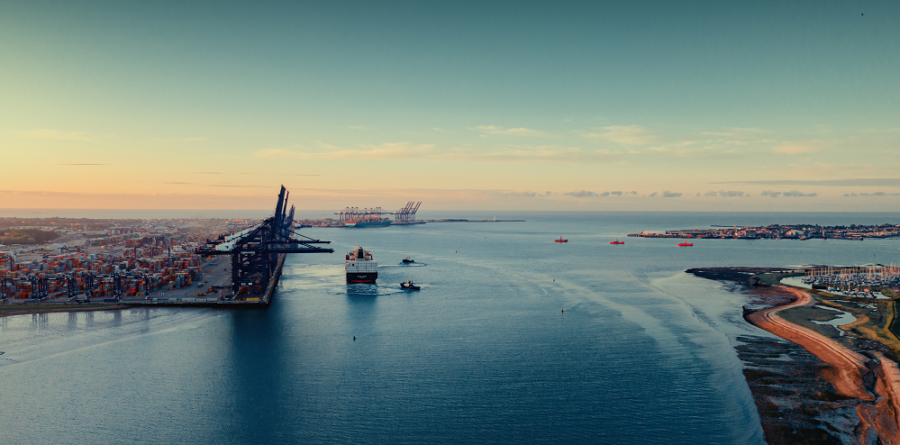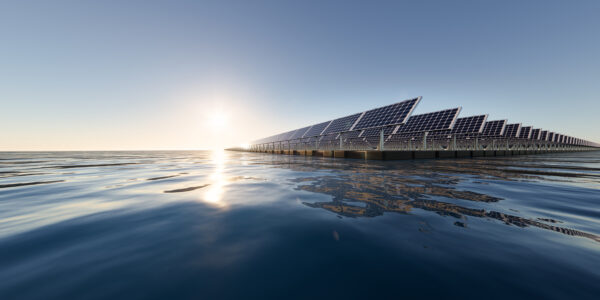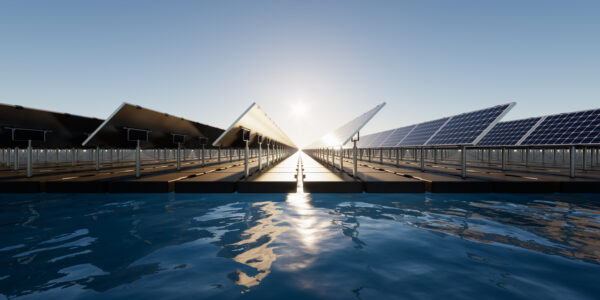Study highlights Freeport East could become key centre for driving transport decarbonisation and maritime green corridors
13/09/2023 -

A new study published today [Tuesday 12 September 2023] suggests that Freeport East could become a new UK centre for transport decarbonisation. The study outlines how Freeport East can facilitate the international partnerships and investment necessary for the Green Hydrogen Hub to support maritime and wider transport sectors.
Freeport East includes the Port of Felixstowe, the UK’s biggest container port and the main destination for container traffic to and from Europe and the Far East – these routes are central to many of the leading green corridor* initiatives, which are seen as key to achieving ambitious maritime decarbonisation objectives.
While the shipping sector is expected to grow by 30-70 per cent by 2050, 60 per cent of new vessel orders in 2022 were for multi-fuel vessels, demonstrating that the transition to clean fuels is already moving at pace. By positioning Freeport East and the wider region into the rapidly growing clean fuels market, it could support many hundreds of skilled jobs and bring significant economic benefits to the local area.
The findings build on research earlier this year that indicated a potential demand for 500MW of hydrogen by 2030 in the Freeport East area. Both reports support the development of the Freeport East Green Hydrogen Hub – aiming to harness abundant local renewable energy to produce green hydrogen for future transport uses.
Freeport East will share findings of the report today at London’s International Shipping Week, which attracts global investors in the maritime sector. It will also be presented at the World Hydrogen Congress in Rotterdam in October.
Key findings from the report include:
- Over 4000 vessels pass through Freeport East each year, which creates a potential need for over 180 tonnes of hydrogen per day for green maritime fuels, or 450MW of new electrolyser capacity
- Freeport East has significant container port capacity, which could have a critical role to play in the development of hydrogen-enabled green shipping corridors through partnering with international ports and shipping lines and brokering new global partnerships
- Investment in new local hydrogen refuelling infrastructure would help reduce carbon emissions from A14 traffic flows, benefiting communities in Freeport East, Cambridge, and other parts of the UK
- New hydrogen investment in the logistics sector could be triggered by the strategic opportunities generated by the existing fuel stations and newer development sites in Felixstowe and along the A14
Steve Beel, Chief Executive of Freeport East, said: “This latest report confirms our goal for Freeport East to act as a hub for transport decarbonisation, reducing emissions both on land and at sea. It highlights opportunities to build new partnerships that will support maritime decarbonisation on a global level, while also providing local economic and employment opportunities within the Freeport East area.
“We look forward to working with a range of industry partners to take these opportunities forward, as well as working with the UK Government to ensure the right policy and subsidy support mechanisms are in place to deliver this critical piece of decarbonisation and our net zero ambitions.”
Dr Jehan Kanga of Rux Energy, an Australian company specialising in advanced materials development for hydrogen storage, is already working closely with Freeport East. Dr Kanga comments: “We welcome the emphasis on international collaboration which this report highlights in relation to developing a cleaner maritime fuels sector, resonating with a number of bilateral clean technology agreements between the UK, Singapore, Australia and other trading partners.
“Rux has already started building links from Australia into the UK, anchored from Freeport East. We are passionate about the need for global coordination to deliver an acceleration of the innovation needed for a cleaner maritime and transportation sector. Freeport East can act as a central player in bringing these international collaborations together and ensuring the UK and its trading partners benefit fully from the shared value generated from scale investment in maritime energy transition.”
One major green hydrogen supply project, led by Scottish Power and Hutchison Ports, is already under development in Felixstowe which is already encouraging investment.
Mark Griffin, Head of Hydrogen Market Development at ScottishPower, said: “We welcome the findings of this report, which outline the need to decarbonise hard-to-electrify sectors like heavy transport and industrial processes. We’re working with Hutchison Ports to explore the potential of green hydrogen to support the ambition to decarbonise the area in and around Felixstowe – the UK’s largest container terminal.”
A new study published today [Tuesday 12 September 2023] suggests that Freeport East could become a new UK centre for transport decarbonisation. The study outlines how Freeport East can facilitate the international partnerships and investment necessary for the Green Hydrogen Hub to support maritime and wider transport sectors.
Freeport East include the Port of Felixstowe, the UK’s biggest container port and the main destination for container traffic to and from Europe and the Far East – these routes are central to many of the leading green corridor* initiatives, which are seen as key to achieving ambitious maritime decarbonisation objectives.
While the shipping sector is expected to grow by 30-70 per cent by 2050, 60 per cent of new vessel orders in 2022 were for multi-fuel vessels, demonstrating that the transition to clean fuels is already moving at pace. By positioning Freeport East and the wider region into the rapidly growing clean fuels market, it could support many hundreds of skilled jobs and bring significant economic benefits to the local area.
The findings build on research earlier this year that indicated a potential demand for 500MW of hydrogen by 2030 in the Freeport East area. Both reports support the development of the Freeport East Green Hydrogen Hub – aiming to harness abundant local renewable energy to produce green hydrogen for future transport uses.
Freeport East will share findings of the report today at London’s International Shipping Week, which attracts global investors in the maritime sector. It will also be presented at the World Hydrogen Congress in Rotterdam in October.
Key findings from the report include:
- Over 4000 vessels pass through Freeport East each year, which creates a potential need for over 180 tonnes of hydrogen per day for green maritime fuels, or 450MW of new electrolyser capacity
- Freeport East has significant container port capacity, which could have a critical role to play in the development of hydrogen-enabled green shipping corridors through partnering with international ports and shipping lines and brokering new global partnerships
- Investment in new local hydrogen refuelling infrastructure would help reduce carbon emissions from A14 traffic flows, benefiting communities in Freeport East, Cambridge, and other parts of the UK
- New hydrogen investment in the logistics sector could be triggered by the strategic opportunities generated by the existing fuel stations and newer development sites in Felixstowe and along the A14
Steve Beel, Chief Executive of Freeport East, said: “This latest report confirms our goal for Freeport East to act as a hub for transport decarbonisation, reducing emissions both on land and at sea. It highlights opportunities to build new partnerships that will support maritime decarbonisation on a global level, while also providing local economic and employment opportunities within the Freeport East area.
“We look forward to working with a range of industry partners to take these opportunities forward, as well as working with the UK Government to ensure the right policy and subsidy support mechanisms are in place to deliver this critical piece of decarbonisation and our net zero ambitions.”
Dr Jehan Kanga of Rux Energy, an Australian company specialising in advanced materials development for hydrogen storage, is already working closely with Freeport East. Dr Kanga comments: “We welcome the emphasis on international collaboration which this report highlights in relation to developing a cleaner maritime fuels sector, resonating with a number of bilateral clean technology agreements between the UK, Singapore, Australia and other trading partners.
“Rux has already started building links from Australia into the UK, anchored from Freeport East. We are passionate about the need for global coordination to deliver an acceleration of the innovation needed for a cleaner maritime and transportation sector. Freeport East can act as a central player in bringing these international collaborations together and ensuring the UK and its trading partners benefit fully from the shared value generated from scale investment in maritime energy transition.”
One major green hydrogen supply project, led by Scottish Power and Hutchison Ports, is already under development in Felixstowe which is already encouraging investment.
Mark Griffin, Head of Hydrogen Market Development at ScottishPower, said: “We welcome the findings of this report, which outline the need to decarbonise hard-to-electrify sectors like heavy transport and industrial processes. We’re working with Hutchison Ports to explore the potential of green hydrogen to support the ambition to decarbonise the area in and around Felixstowe – the UK’s largest container terminal.”
The Freeport East Green Hub report ‘Strategic analysis of the role of hydrogen in driving green corridors and transport decarbonisation at Freeport East’ can be found here.
All articles on this news site are submitted by registered contributors of SuffolkWire. Find out how to subscribe and submit your stories here »

